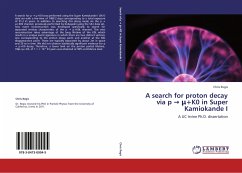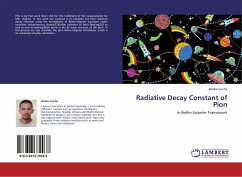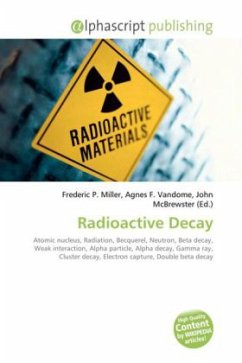High Quality Content by WIKIPEDIA articles! In particle physics, proton decay is a hypothetical form of radioactive decay in which the proton decays into lighter subatomic particles, usually a neutral pion and a positron. Proton decay has not been observed. There is currently no experimental evidence that proton decay occurs. In the Standard Model, protons, a type of baryon, are theoretically stable because baryon number is conserved. Therefore protons will not decay into other particles on their own, because they are the lightest (and therefore least energetic) baryon. Some beyond-the-Standard Model grand unified theories (GUTs) explicitly break the baryon number symmetry, allowing protons to decay via new X bosons. Proton decay is one of the few observable effects of the various proposed GUTs. To date, all attempts to observe these events have failed.
Bitte wählen Sie Ihr Anliegen aus.
Rechnungen
Retourenschein anfordern
Bestellstatus
Storno








